How To Use Apple Cider Vinegar For Skin Tag Removal
Some helpful home remedies to get rid of those annoying skin tissue growths.
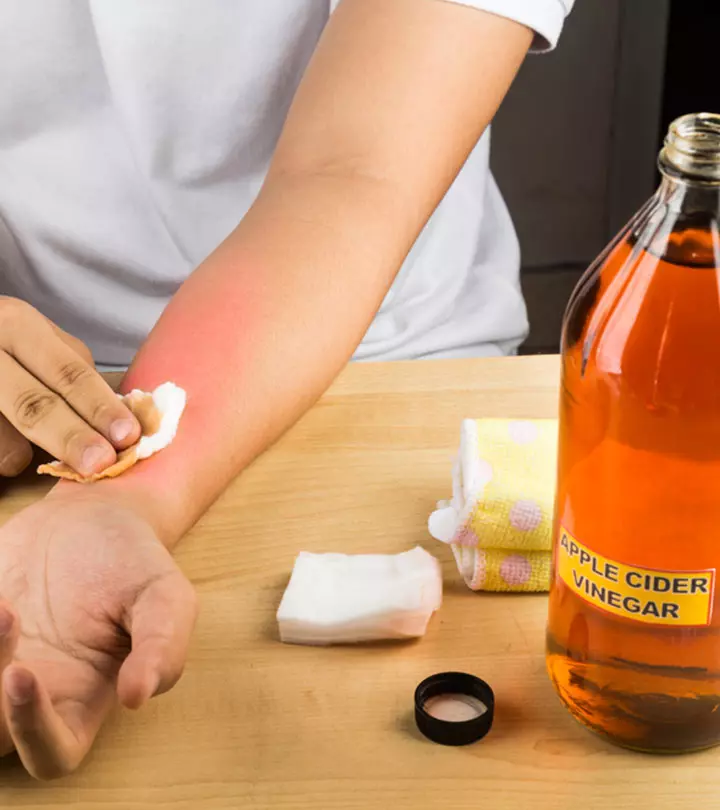
Image: Shutterstock
Skin tags are common and do not cause any medical concerns. But, some of us prefer removing them. There are many natural remedies available for removing skin tags. One such popular technique is using apple cider vinegar.
Incorporating apple cider vinegar into their daily routine may improve their overall health by aiding in weight loss, and digestion, and reducing acidity levels thanks to its fermentation process. In this article, we will discuss how safe and effective apple cider vinegar is for removing skin tags. Keep reading!
 Know Your Ingredient: Apple Cider Vinegar
Know Your Ingredient: Apple Cider VinegarWhat Is It?
Vinegar made from fermented apple juice.
What Are Its Benefits?
The acetic acid content in ACV is claimed to remove skin tags.
Who Can Use It?
Anyone can use it except people with sensitive skin.
How Often?
Apple cider vinegar can be used twice a day for skin tag removal.
Caution
It may erode or scar the skin, leading to skin damage.
In This Article
What Are Skin Tags?
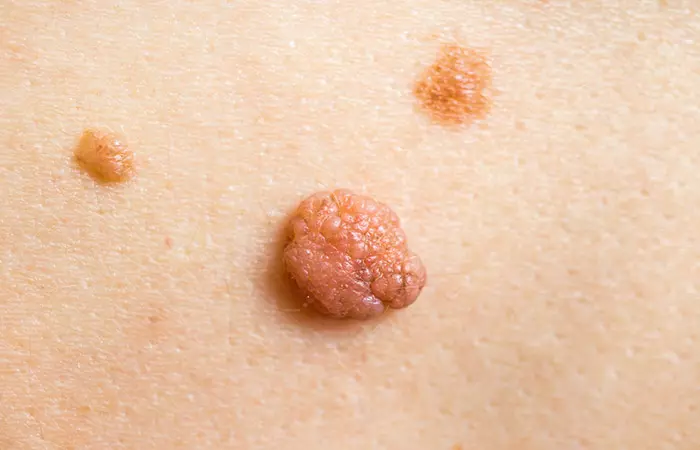
Skin tags are small and soft cutaneous growths that hang off the skin. They occur naturally due to factors like friction, trauma, and genetic causes. “They may occur anywhere on the body. Although, they are more common where skin scrapes against flesh or clothes,” says Dr. Michael K Newman, a board-certified plastic surgeon. Almost 50-60% of adults develop skin tags in their lifetime (1).
Skin tags don’t cause any health issues. However, most people prefer removing them for cosmetic reasons. There are both outpatient procedures as well as home remedies available for the same. The use of apple cider vinegar is one such home remedy.
 Trivia
TriviaCan you use apple cider vinegar to remove skin tags? See what an expert has to say about this in the next section.
Key Takeaways
- Apple cider vinegar is considered a common home remedy for removing skin tags.
- While it is considered safe, there could be a possibility of skin irritation and redness on use.
- Other home remedies for removing skin tags include tea tree oil, iodine solution, and vitamin E oil.
- It is important to seek medical advice, especially for skin tags in sensitive areas.
Can Apple Cider Vinegar Remove Skin Tags?

“Yes, apple cider vinegar treatments for small skin tags can be an effective therapy,” says Dr. Alexander Zuriarrain, a board-certified plastic surgeon. However, he adds that this process cannot remove the larger skin tags with long stalks.
Anecdotal evidence suggests people have been using apple cider vinegar to remove skin tags for many years. Despite this, scientific studies supporting this claim are limited. Therefore, you should approach apple cider vinegar for skin tag removal with caution.
“In general, apple cider vinegar is safe. However, it can cause skin irritation and redness, which should prompt discontinuing this method of treatment. Yet, it will usually not cause any permanent damage. Its effectiveness is questionable depending on a variety of factors associated with the skin tag,” adds Dr. Zuriarrain.
Learn what research has to say about this home remedy in the next section.
What Does Research Say?
Of course, it adds a tangy flavor to their cooking, but there is no scientific evidence to back the usage of apple cider vinegar to remove skin tags. Scattered reports suggest that the topical application of highly concentrated acetic acid solutions alleviates warts (2). Since apple cider vinegar contains 5-6% acetic acid, it might help remove skin tags.
Moreover, some studies show apple cider vinegar may even damage your skin. In one case, the application of apple cider vinegar for mole removal resulted in skin erosion and scarring (3). Another incident reports a chemical burn after applying apple cider vinegar to the knee (4).
However, anecdotal evidence reports positive results of apple cider vinegar usage on skin tags. Read on to learn how to use use it for this purpose.
How To Use Apple Cider Vinegar For Skin Tag Removal
Step 1:
Soak a cotton ball in apple cider vinegar.
Step 2: Place it on the skin tag.
Step 3: Secure the cotton ball in place with a bandage or surgical tape.
Step 4: Leave it on for 30 minutes.
Step 5: Wash the area with mild soap and lukewarm water.
Step 6: Allow the area to dry.
“Apple cider vinegar can be used twice a day to show results. It can take up to 2 to 3 weeks for the skin tag to be broken down”, says Dr. Zuriarrain. He also suggests consulting a doctor for more information on the proven ways to remove a skin tag permanently.
 Quick Tip
Quick TipAs mentioned above, ACV may not always be a safe option for your skin. Let us find out the side effects associated with this ingredient.
Side Effects Of Apple Cider Vinegar
The potent, acidic properties of ACV can lead to skin erosion and burns and cause irritation, especially upon the direct application of undiluted ACV to the skin. For instance, a study recorded a 14-year-old girl experiencing burns on her nose when attempting to remove moles using ACV (3). However, contrary to this, Jasmin, a YouTuber, shared her experience of using apple cider vinegar and how it helped her get rid of a mole. After using apple cider vinegar on her mole for a couple of days, she observed, “It’s basically flat, it looks like the area is healing (i).”
Also, excess use of ACV can strip the skin of its natural oils and cause dryness and flakiness. People who are allergic to the components of ACV or those with sensitive skin may develop skin irritation as well. Therefore, always conduct a patch test before using it.
Apart from apple cider vinegar, people also use other home remedies to get rid of skin tags. Read on to learn more.
Other Home Remedies For Skin Tag Removal
While there are many home remedies available, there is no scientific data to support their efficacy. Some of them are:
- Tea Tree Oil

Anecdotal evidence supports the usage of tea tree oil on skin tags. First, soak a cotton ball in tea tree oil and place it on the skin tag. Secure it in place with some surgical tape for 10-15 minutes. Then, take it off and clean it with lukewarm water. It may take a few weeks for the tag to fall off.
- Iodine
People use liquid iodine to remove skin tags, though there is no scientific evidence to back the process. First, apply petroleum jelly to protect the skin surrounding the skin tag. Apply iodine to the skin tag and let it dry. You may repeat this procedure twice a day until the skin tag drops off.
- Vitamin E Oil

Massage a few drops of vitamin E oil into the skin tag and the surrounding skin. Wait for 10-20 minutes before washing it off. It is said that the skin tag falls off in a couple of days.
Apart from these remedies, you may also consider exploring and trying other home remedies for skin tags. However, before using them, its important to learn all the safety precautions you need to follow while using these home remedies for removing skin tags. Keep scrolling to learn more.
Safety Precautions For Using Home Remedies For Skin Tag Removal

Do not use home remedies on skin tags that are:
- Located near the eyes.
- Located near the genitals.
- Very large or long.
- Painful, bleeding, or itching.
Seek medical treatment for the skin tags mentioned above.
Do not apply a bandage directly over the skin tag. Instead, always keep a cotton ball on top of it before securing it with a bandage.
Conduct a patch test before applying these ingredients to your skin tag. Wait for 24 hours to check for any adverse effects like irritation or burning.
Infographic: When To See A Doctor For Skin Tag Removal?
Not all skin tags are painful and dangerous. They are soft cell growths that appear on the surface of the body. While most don’t need any treatment, some may need to be treated and removed by a medical practitioner. Click on the infographic below to know when to see a doctor for skin tag removal. Illustration: StyleCraze Design Team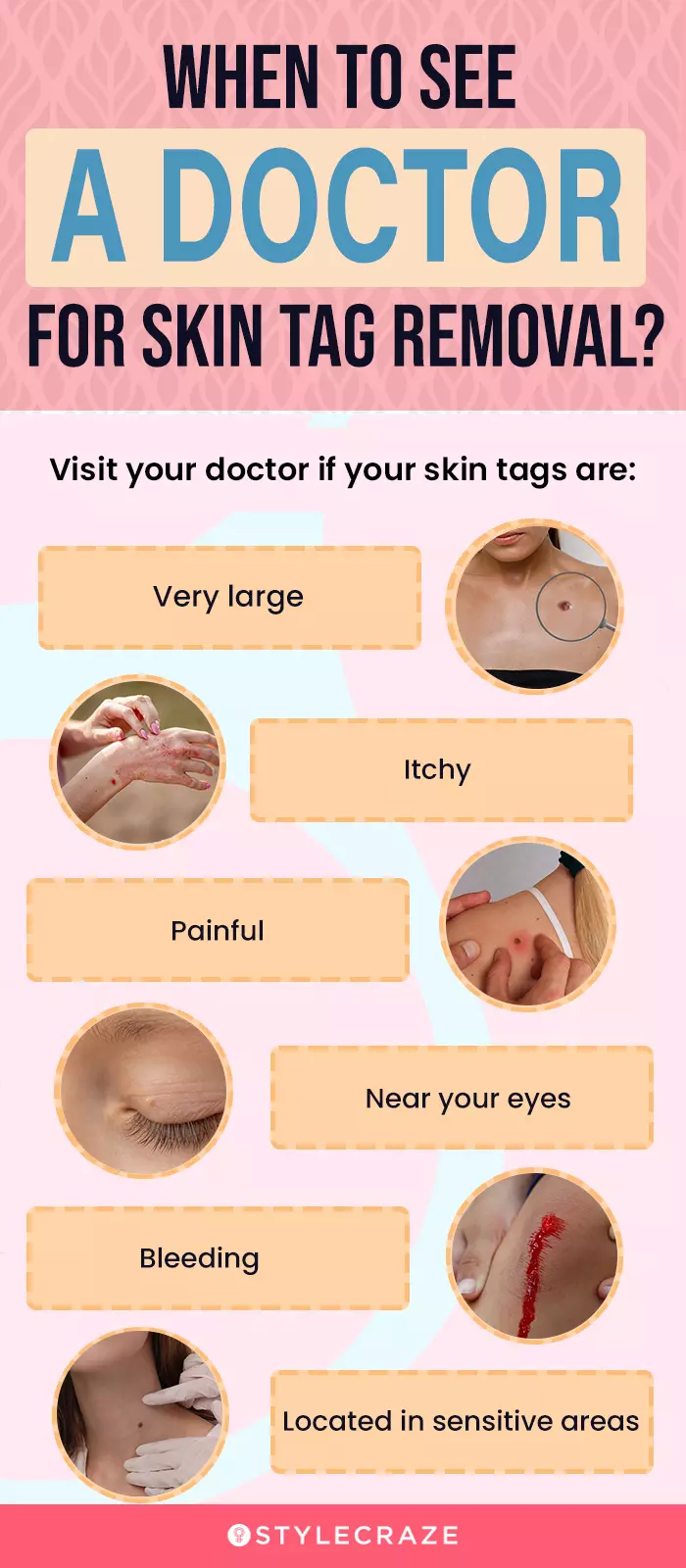
Skin tags are soft and flesh-colored growths that develop due to genetics, friction, or injury. Even though skin tags are harmless, you may resort to home remedies such as apple cider vinegar for small skin tag removal. Since there is no scientific evidence to support them, practice caution while using them. You can also opt for alternatives such as tea tree, vitamin E oil, or iodine to remove skin tags. However, it is recommended that you consult a doctor for effective medical treatments for skin tag removal.
Frequently Asked Questions
Can apple cider vinegar interact with medications?
Yes, apple cider vinegar may interact with medications like diuretics and antidiabetes drugs (5). So, you must consume it only on the recommendation of a doctor. However, when it comes to using apple cider vinegar for skin tag removal, you only need to use ACV topically and these interactions may not occur. However, topical use may still cause skin irritation or interact with other skin treatments. Always consult your doctor to avoid this.
Do skin tags mean you have diabetes?
Not necessarily. While people with diabetes may develop skin tags, these growths can also result from other health and lifestyle-related factors.
Do skin tags grow back?
No, skin tags usually do not grow back after removal. But, you may develop new ones.
Does eating too much sugar cause skin tags?
It is unclear. However, people with high blood sugar and insulin resistance tend to develop skin tags. Its exact cause is still unclear.
Illustration: How To Use Apple Cider Vinegar For Skin Tag Removal

Image: Stable Diffusion/StyleCraze Design Team
Learn how to easily remove skin tags using apple cider vinegar! Watch this video to learn how to get rid of skin tags quickly and safely. Check it out today!
Personal Experience: Source
StyleCraze's articles are interwoven with authentic personal narratives that provide depth and resonance to our content. Below are the sources of the personal accounts referenced in this article.
i. How to REMOVE A MOLE at home with Apple Cider Vinegar (STEP-BY-STEP DETAILS!)https://www.youtube.com/watch?v=E9jGvNqPGk4
References
Articles on StyleCraze are backed by verified information from peer-reviewed and academic research papers, reputed organizations, research institutions, and medical associations to ensure accuracy and relevance. Read our editorial policy to learn more.
- Skin Tags
https://www.ncbi.nlm.nih.gov/books/NBK547724/ - Vinegar: Medicinal Uses and Antiglycemic Effect
https://www.ncbi.nlm.nih.gov/pmc/articles/PMC1785201/ - Chemical Bum from Vinegar Following an Internet-based Protocol for Self-removal of Nevi
https://www.ncbi.nlm.nih.gov/labs/pmc/articles/PMC4479370/ - Chemical Burn From Topical Apple Cider Vinegar
https://www.jaad.org/article/S0190-9622(11)02243-2/fulltext - Apple Cider Vinegar
https://medlineplus.gov/druginfo/natural/816.html
Read full bio of Dr. CP Thajudheen
Read full bio of Swathi E
Read full bio of Anjali Sayee
Read full bio of Monomita Chakraborty







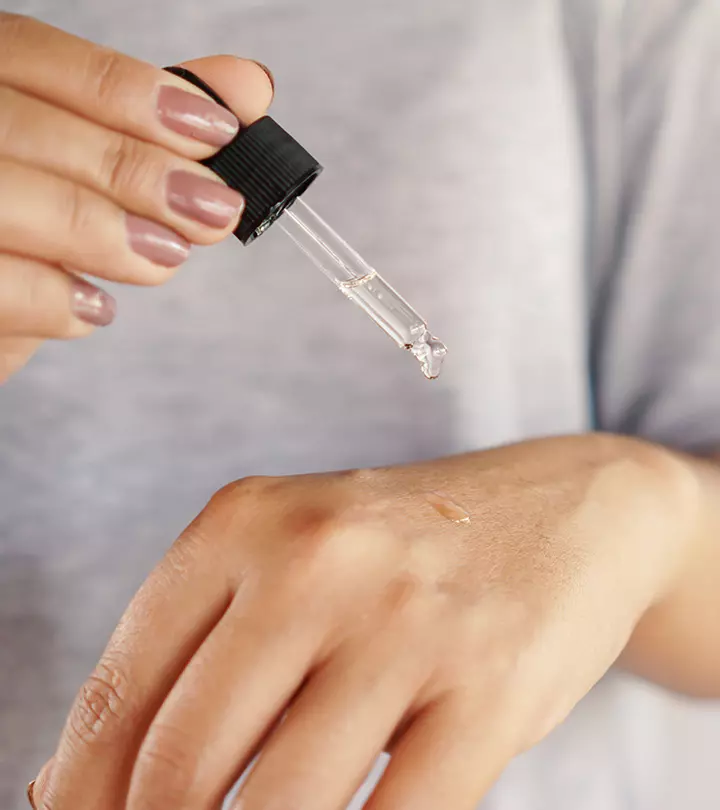


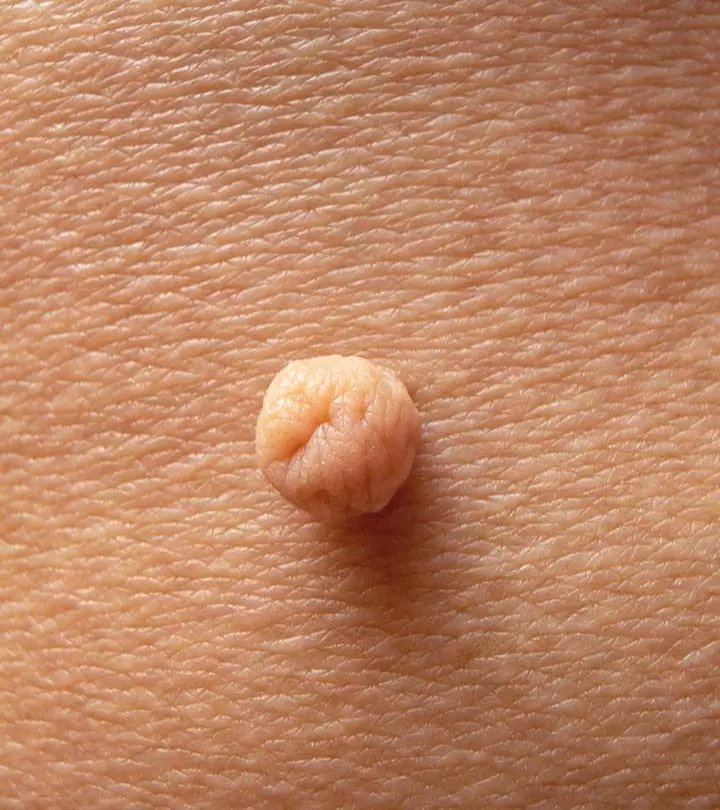





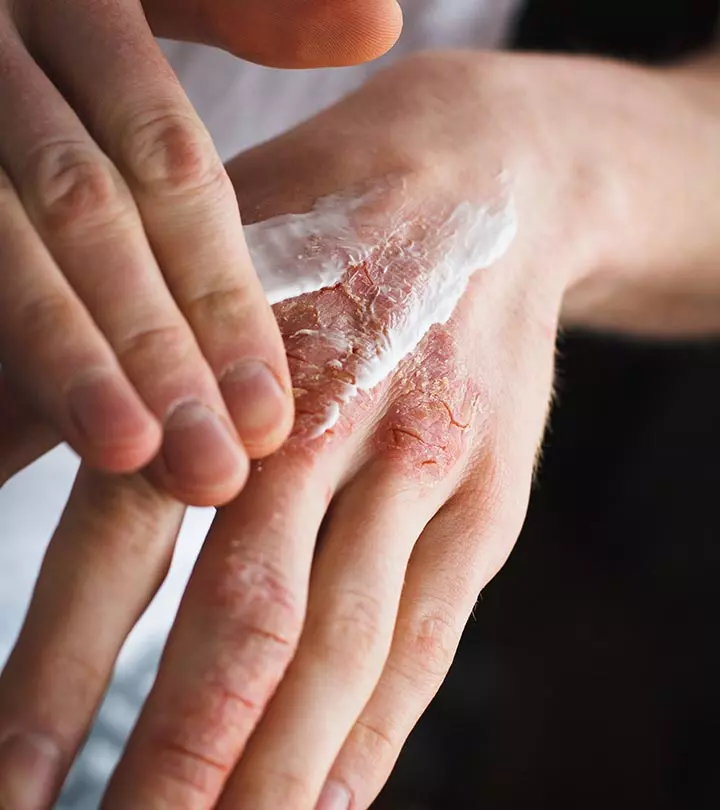


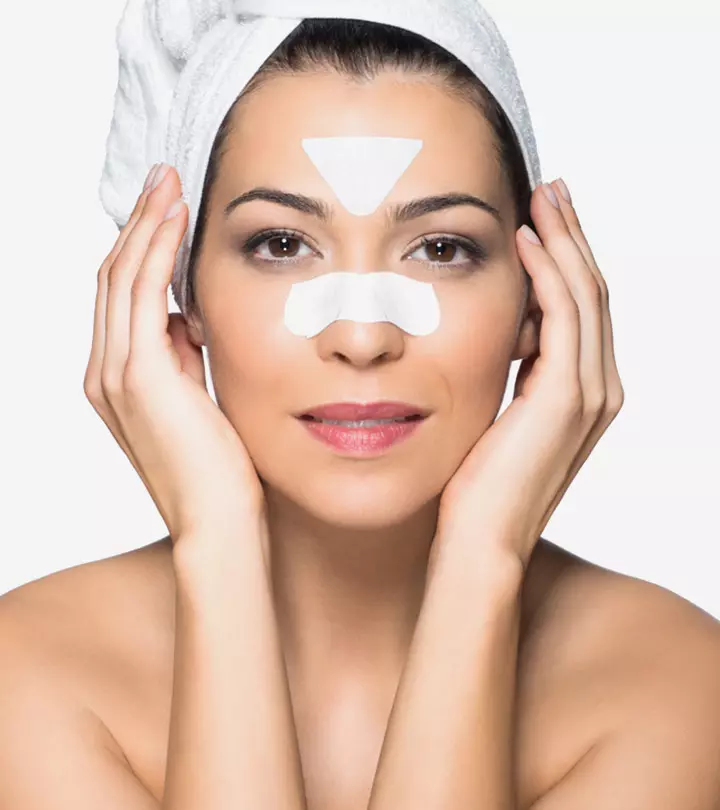

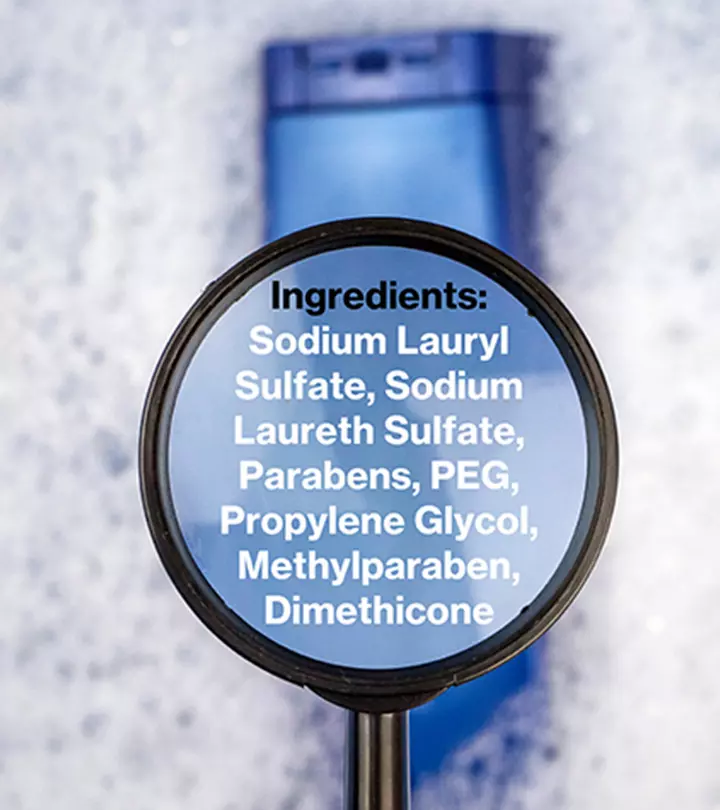



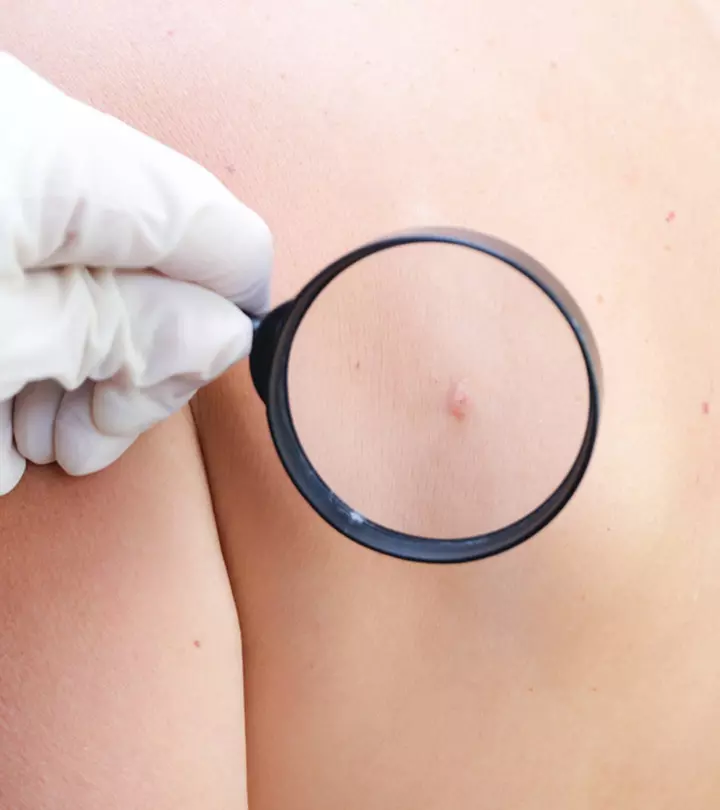


Community Experiences
Join the conversation and become a part of our empowering community! Share your stories, experiences, and insights to connect with other beauty, lifestyle, and health enthusiasts.